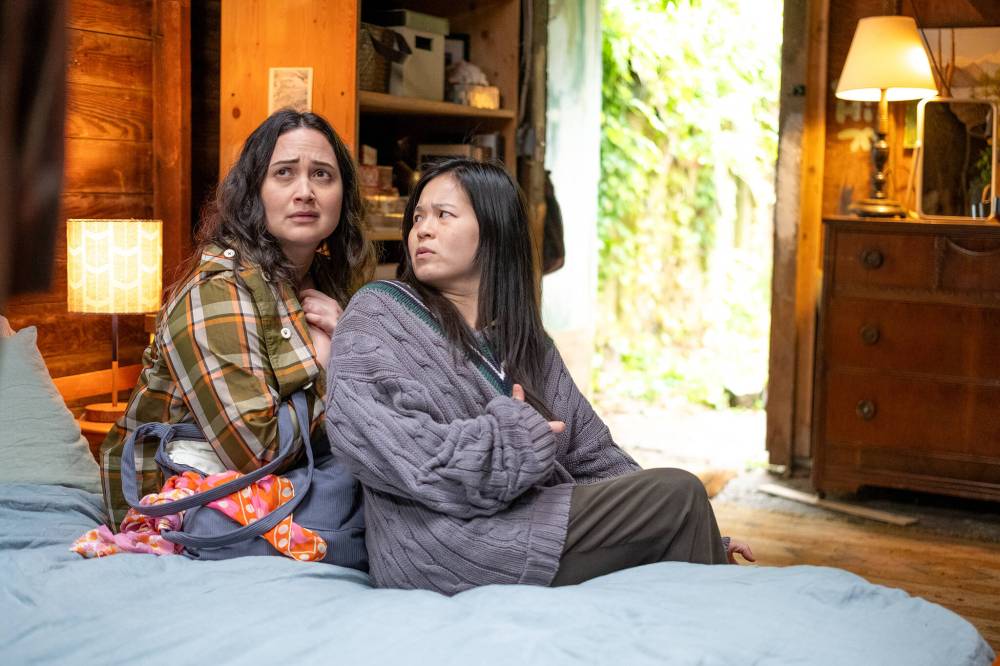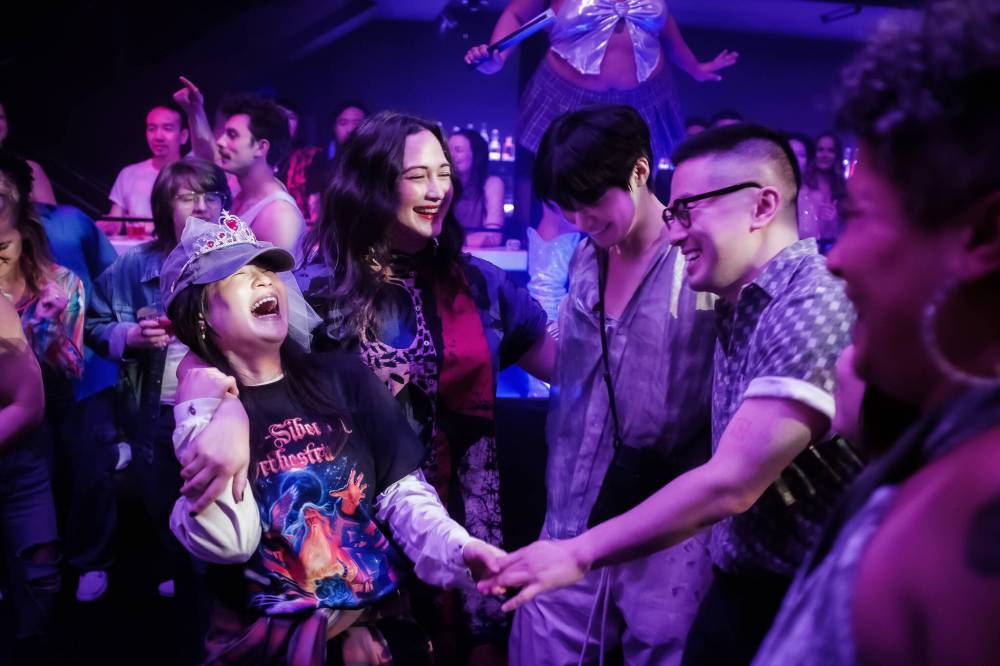Remake of queer dramedy sweetly surprising, predictable
Advertisement
Read this article for free:
or
Already have an account? Log in here »
To continue reading, please subscribe:
Monthly Digital Subscription
$0 for the first 4 weeks*
- Enjoy unlimited reading on winnipegfreepress.com
- Read the E-Edition, our digital replica newspaper
- Access News Break, our award-winning app
- Play interactive puzzles
*No charge for 4 weeks then price increases to the regular rate of $19.00 plus GST every four weeks. Offer available to new and qualified returning subscribers only. Cancel any time.
Monthly Digital Subscription
$4.75/week*
- Enjoy unlimited reading on winnipegfreepress.com
- Read the E-Edition, our digital replica newspaper
- Access News Break, our award-winning app
- Play interactive puzzles
*Billed as $19 plus GST every four weeks. Cancel any time.
To continue reading, please subscribe:
Add Free Press access to your Brandon Sun subscription for only an additional
$1 for the first 4 weeks*
*Your next subscription payment will increase by $1.00 and you will be charged $16.99 plus GST for four weeks. After four weeks, your payment will increase to $23.99 plus GST every four weeks.
Read unlimited articles for free today:
or
Already have an account? Log in here »
Hey there, time traveller!
This article was published 17/04/2025 (231 days ago), so information in it may no longer be current.
In the original 1993 version of The Wedding Banquet, a real estate developer living in Brooklyn with his boyfriend plans to marry one of his female tenants. She will get a green card and he will placate his traditional Taiwanese parents, who are yearning for a grandchild.
Ang Lee’s queer dramedy broke ground in the ‘90s, but in 2025, when gay marriage is legal and same-sex parenting is common, the scenario could use a fresh take.
Director Andrew Ahn (Fire Island), who worked on the screenplay with original scripter James Schamus, is meeting a new political and cultural moment in this updated story (in English, Korean and Mandarin, with English subtitles). The results are predictable in some ways and sweetly surprising in others.

Luka Cyprian / Bleecker Street
Lily Gladstone (left) and Kelly Marie Tran play a couple having trouble conceiving.
Angela (The Last Jedi’s Kelly Marie Tran) and Lee (Lily Gladstone of Certain Women and Killers of the Flower Moon) live together in a little hillside house in Seattle (which is actually Vancouver). They’re deeply in love but the failure of a second round of IVF treatments is taking an emotional and financial toll.
Angela also has some unresolved feelings about becoming a mother, thanks to her fractious relationship to her own parent, May (Twin Peaks’ Joan Chen). May’s reaction to Angela’s coming out is supportive, but there’s a comically performative, all-about-me quality to her allyship.
Living as tenants in Angela and Lee’s converted garage are Chris (Saturday Night Live’s Bowen Yang) and Min (Han Gi-chan of Where Your Eyes Linger). Chris is paralyzed by what he calls “millennial indecision.” He has stalled his PhD studies (“Queer theory takes the joy out of being gay,” he explains), and while he adores Min, he isn’t ready to commit to marriage.
Min is an art student from a wealthy South Korean family whose visa is set to expire.
His grandmother, Ja-Young (Youn Yuh-Jung, an Oscar winner for Minari), wants Min to come back home and take up his role in the family business.
Min stumbles into a possible solution to stay in America: he will marry Angela. Min will get immigration status and Angela and Lee will get money — via Min’s trust fund — for another round of IVF.
This setup gets more complicated when Ja-Young arrives unexpectedly at the Seattle airport. Cue the frantic montage in which Chris, Lee and Angela “de-queer” the house, bundling books, DVDs, art and photos into boxes. Even the Lilith Fair poster has to go. (Evidently, the Indigo Girls are huge in Korea.) Sleeping arrangements are shuffled around and Angela attempts to look more conventionally bridelike.
Understandably, Ahn is not interested in mining comedy from gay characters reluctantly pretending to be straight and the “passing” aspect of the plot is jettisoned almost immediately. In fact, in a clever comic inversion of the original storyline, May is distraught about her daughter getting married to a man. How will she face the other members of her PFLAG group?
Ahn also opens up a lovely dramatic subplot in which Min discovers he has been underestimating his grandmother, who understands much more than he thinks.

Luka Cyprian/Bleecker Street
From left: Kelly Marie Tran, Lily Gladstone, Han Gi-chan and Bowen Yang
Sticking to standard rom-com mode, the film does require miscommunications and mistimings among the two couples. Some of these obstacles are farcical, some are poignant and some seem over-engineered to advance the plot.
The ensemble cast is able, but Ahn sometimes fights to find a tonal balance between comedy and drama. Gladstone, who is an extraordinary dramatic actor, is underused in serious scenes, while Yang looks as if he’d like the chance to be funnier, as he was in Ahn’s Fire Island, a raucous, raunchy, queered-up take on Pride & Prejudice.
Still, even though The Wedding Banquet can be a bit earnest and obvious and explication-heavy, there’s something appealing about its warm affirmation of queer found families.
And the feelgood conclusion, which could seem like a safe choice in other circumstances, here feels more like a pointed retort to decades of mandatory tragic endings for gay characters in Hollywood movies. Sometimes, as Ahn and his talented cast remind us, happiness can be radical.
arts@freepress.mb.ca

Studying at the University of Winnipeg and later Toronto’s York University, Alison Gillmor planned to become an art historian. She ended up catching the journalism bug when she started as visual arts reviewer at the Winnipeg Free Press in 1992.
Our newsroom depends on a growing audience of readers to power our journalism. If you are not a paid reader, please consider becoming a subscriber.
Our newsroom depends on its audience of readers to power our journalism. Thank you for your support.


